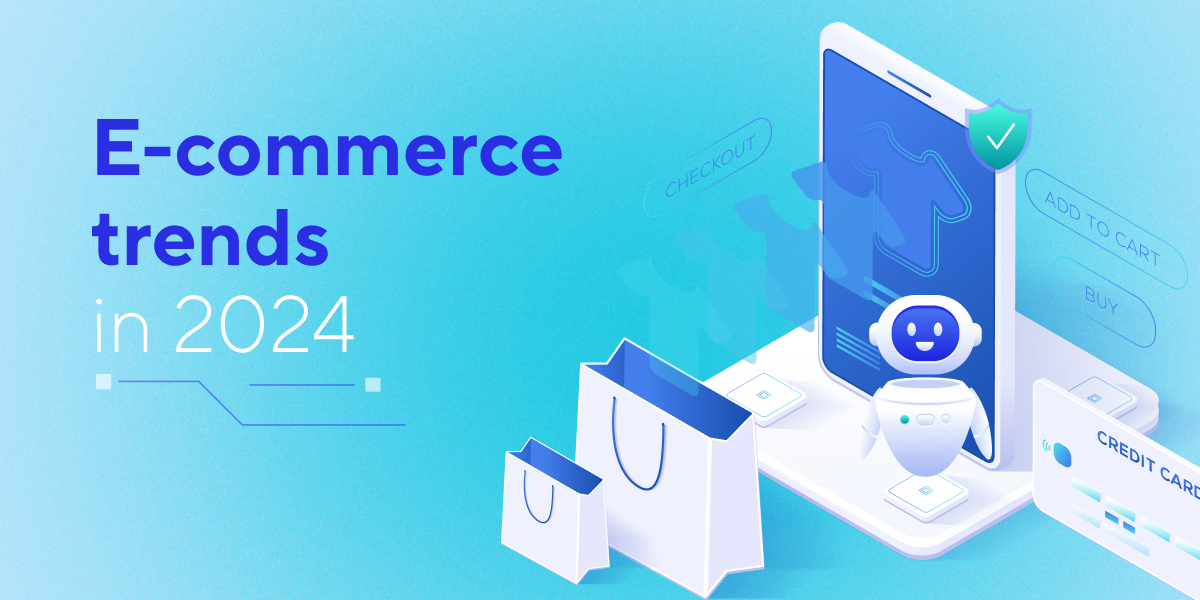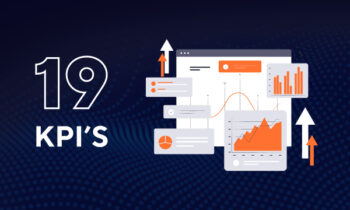Spotlight on e-commerce trends 2024!

Adapting to rapidly evolving trends and technologies, shifting consumer behaviors, and market trends is quite a challenge.
To assist you with this matter, we’ve asked our experts and consultants to decipher the main trends regarding e-commerce in 2024.
Headless and PWA
« Headless Commerce » technically separates the interface presented to the customer from the various systems and tools that drive the activity. This makes it possible to offer customers a completely personalized experience by providing the most suitable tools to improve conversion on your site. Switching to headless provides the agility needed to keep up with the evolving e-commerce trends 2024.
Although the overall architecture has become more complex, many e-commerce platforms are now embracing headless and allowing for a gradual transition from a « monolithic » model to a decoupled one.
Progressive Web Apps (PWAs) will gain even more ground, thus providing experiences akin to apps but on the web.
PWAs combine the best features of websites and mobile applications, offering users a seamless and responsive experience even in the absence of a stable internet connection. With the increasing use of smartphones for online shopping, PWAs are becoming a crucial element for companies seeking to remain competitive in the e-commerce market.
In addition to the trends mentioned above, e-commerce trends 2024 is faced with new challenges and opportunities. The rise of voice commerce, for example, provides new ways to interact with customers and simplify the purchasing process. Similarly, Augmented Reality (AR) and Virtual Reality (VR) are transforming the online shopping experience, allowing customers to interact with products in an immersive way before making a purchase.
At the same time, businesses must prepare to address increasingly strict regulations regarding data protection and consumer privacy. Compliance with standards such as the General Data Protection Regulation (GDPR) is essential to maintain customer trust and avoid potentially costly fines.
Contact our e-commerce experts
AI everywhere
AI-based technologies are increasingly playing a major role in the development process (code reviews, optimization, etc), as well as in the opportunities provided to your customers. The use of AI already common for enriching & translating product information is increasingly focusing on collecting and analyzing customer data. The possibility of processing all this data in realtime will enable the identification of individual preferences, prediction of behaviors, and offering of targeted recommendations, making the buying journey more interactive and efficient.
Customer service will also benefit from this. Chatbots and virtual assistants, powered by AI, will be able to swiftly and effectively respond to visitors’ and customers’ inquiries, providing relevant suggestions and assistance, all proactively.
Today, businesses are increasingly relying on AI to generate valuable insights into the products and services most likely to capture consumers’ interest. This predictive capability allows companies to stay ahead of the competition by offering relevant offers and promotions and adjusting their marketing strategy based on emerging e-commerce trends 2024.
Furthermore, AI is also being used to enhance inventory management and price optimization. By analyzing real-time sales data and forecasting future demand, AI-based systems can help businesses optimize their inventory, avoid stockouts, and maximize revenue. Similarly, AI algorithms can dynamically adjust prices based on demand and competition, ensuring competitive pricing and maximizing profit margins.
Checkout & payment
Web performance and page loading time remain key elements to monitor and optimize. Quick checkout options or « 1-click » streamline the process and improve conversion rates. The frictionless payment experience continues to evolve, especially through new distinctive payment options at checkout, such as immediate bank transfer or BNPL (Buy Now, Pay Later). Not to mention dedicated mobile solutions like ApplePay or GooglePay.
Open Banking payment services will also expand. In the context of massive digitization of transactions – especially in B2B – it becomes essential to invest in anti-fraud payment methods or fraud detection technologies. Leveraging AI allows for analyzing sales patterns and detecting potential anomalies in real time. Indeed, today, AI is also used to detect and prevent fraud in online transactions. Machine learning algorithms can identify suspicious behavioral patterns in real time, enabling companies to take preventive measures to protect their customers and their operations.
B2B e-commerce
It’s important to remember that a B2B buyer is also a B2C buyer, and now expects suppliers to provide a purchasing experience similar to their personal life. Recommendations, personalization, and optimization of the ordering and payment process are key focuses of B2B e-commerce trends 2024.
Overall, we are witnessing the disappearance of procurement sites in favor of Self-Service portals. These Self-Service portals provide customers with a comprehensive view of their business activity, going beyond simple order placement. In addition to making purchases, customers can also generate custom reports to analyze their expenses, order spare parts or complementary products, and access additional services such as equipment maintenance tracking.
Furthermore, these portals often integrate configuration tools that allow customers to customize products according to their specific needs.
Additionally, Self-Service portals offer simplified access to after-sales service (SAV). Customers can report issues, request repairs or replacements, and track the progress of their SAV requests directly from the online platform.
In summary, the transition to Self-Service portals represents a major evolution in the field of B2B e-commerce, offering customers a more intuitive, efficient, and autonomous experience to manage all of their business activities.
Companies must constantly adjust their strategies, and adopt new technologies and innovations to remain competitive. To do this, focus on continuous improvement and quick wins, and constantly measure your changes to quantify their success. The choice is not simple, and the experts at DATASOLUTION are available to study the best possible solution to meet your needs. With mastery of over 10 e-commerce platforms and all of our partners, we will provide you with the answer to your expectations.


